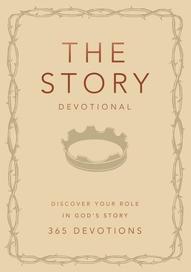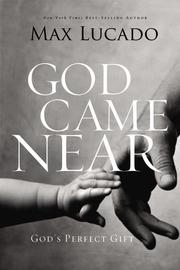
A come-to-Jesus moment may refer to the moment in which a person has a religious conversion and dedicates his life to Jesus. However, the term has also taken on a more secular meaning. A come-to-Jesus moment may refer to that point in time when someone has a realization, becomes enlightened, understands the core values that must be preserved in a situation. The phrase come-to-Jesus moment is often used when describing the moment when a politician, employee or child understands that he is on the wrong path and must change direction, it is often considered a positive development.
In most cases a come to Jesus moment is positive in that it’s the moment that you realize that your trust should be in God and not a person, including yourself. It’s that moment that you realize that you’ve reached “the end of your rope”, “the bottom of the barrel” (more idioms). For me it was at a time when I had been unemployed for several months with no hot prospects for employment. In fact there were no prospects at all, hot or cold. I thought that because of the life that I was living at the time (I was saved but you couldn’t tell it by my life) God was punishing me. My “come to Jesus moment” was, when in a counseling session with my pastor, I learned from Scripture that God wasn’t punishing me. He punishes sin at the judgement on the return of Jesus. Since I was saved I would not be punished because Jesus had already been punished for my sin.
2 Corinthians 5:21 (HCSB) He made the One who did not know sin to be sin for us, so that we might become the righteousness of God in Him.
What was happening to me was the consequences of my sin, which left me not being sure of myself, and feeling unworthy. When I realized that when I sinned I was really sinning against God and that He will forgive me if I ask Him to.
Psalm 51:4 (HCSB) Against You—You alone—I have sinned and done this evil in Your sight. So You are right when You pass sentence; You are blameless when You judge.
He would not only forgive me but also cleanse me of my unrighteousness. In other words let me know that I’m alright with Him.
1 John 1:9-10 (HCSB) 9 If we confess our sins, He is faithful and righteous to forgive us our sins and to cleanse us from all unrighteousness.10 If we say, “We don’t have any sin,” we make Him a liar, and His word is not in us.
Once I had that “come to Jesus moment” my outlook changed, my job search changed, I was confident again, and very soon I had a job. There have been bumps in the road since then but my relationship with God has continued to grow and He has always been there.
We’ve all had or will have a “come to Jesus moment”, but few of us have had a moment as spectacular as Jacob. His was so spectacular that at the end of it he got a new name.
The Story Devotional published by Zondervan tells the story of Jacob’s “come to Jesus moment”.
from The Story Devotional
Jacob said to his household, “Get rid of the foreign gods you have with you, and purify yourselves… Then come, let us go up to Bethel, where I will build an altar to God.” So they gave Jacob all the foreign gods, and Jacob buried them under the oak at Shechem. — Genesis 35:2–4
Maybe you’ve had a “Come to Jesus” moment, a point in your life when you finally realized you were headed in the wrong direction, that you were going nowhere fast, that you were not making Mom proud, that you could hardly look at yourself in the mirror.
Jacob had chronic hip pain to remind him of his “Come to Jesus” moment — and clearly the moment affected more than his hip. His heart was changed too: he called the people to abandon their false gods and turn to the one true God, the One who answered Jacob’s prayers and “has been with me wherever I have gone” (Genesis 35:3).
Then the Lord blessed Jacob by reiterating the promises spoken to his grandfather and his father:
A nation and a community of nations will come from you… The land I gave to Abraham and Isaac I also give to you, and I will give this land to your descendants after you. — Genesis 35:11–12
Great is God’s faithfulness to all generations!
Write down for future generations stories of God’s faithfulness to generations of your family.
Excerpted with permission from The Story Devotional, copyright Zondervan.

Max Lucado also writes about Jacob’s “come to Jesus moment” in his book God Came Near
In the Mud of Jabbok
by Max Lucado, from God Came Near
No man is too bad for God. — Max Lucado
He was the riverboat gambler of the patriarchs. A master of sleight of hand and fancy footwork. He had gained a seamy reputation of getting what he wanted by hook or crook — or both. Twice he dealt hidden cards to his dull-witted brother Esau in order to climb the family tree. He once pulled the wool over the eyes of his own father, a trick especially dirty since his father’s eyes were rather dim, and the wool he pulled insured him a gift he would never have received otherwise.
He later conned his father-in-law out of his best livestock and, when no one was looking, he took the kids and the cattle and skedaddled.
Yes, Jacob had a salty reputation, deservedly so. For him the ends always justified the means. His cleverness was outranked only by his audacity. His conscience was calloused just enough to let him sleep and his feet were just fast enough to keep him one step ahead of the consequences.
That is, until he reached a river called Jabbok (Genesis 32). At Jabbok his own cunning caught up with him.
Jacob was camped near the river Jabbok when word reached him that big, hairy Esau was coming to see him. It had been twenty years since Jacob had tricked his brother. More than enough time, Jacob realized, for Esau to stir up a boiling pot of revenge. Jacob was in trouble. This time he had no more tricks up his sleeve. He was finally forced to face up to himself and to God.
To Jacob’s credit, he didn’t run away from the problem. One has to wonder why. Maybe he was sick of running. Or maybe he was tired of looking at the shady character he saw every morning in the mirror. Or maybe he simply knew that he’d dealt from the bottom of the deck one too many times. Whatever the motivation, it was enough to cause him to come out of the shadows, cross Jabbok Creek alone, and face the facts.
The word Jabbok in Hebrew means “wrestle,” and wrestle is what Jacob did. He wrestled with his past: all the white lies, scheming, and scandalizing. He wrestled with his situation: a spider trapped in his own web of deceit and craftiness. But more than anything, he wrestled with God.
He wrestled with the same God who had descended the ladder at Bethel to assure Jacob he wasn’t alone (although he deserved to be). He met the same God who had earlier guaranteed Jacob that he would never break his promise (though one could hardly fault God if he did). He con- fronted the same God who had reminded Jacob that the land prepared for him was still his. (Proof again that God blesses us in spite of our lives and not because of our lives.)
Jacob wrestled with God the entire night.
On the banks of Jabbok he rolled in the mud of his mistakes. He met God face to face, sick of his past and in desperate need of a fresh start. And because Jacob wanted it so badly, God honored his determination. God gave him a new name and a new promise. But he also gave a wrenched hip as a reminder of that mysterious night at the river.
Jacob wasn’t the only man in the Bible to wrestle with self and God because of past antics. David did after his rendezvous with Bathsheba. Samson wrestled, blind and bald after Delilah’s seduction. Elijah was at his own Jabbok when he heard the “still, small voice.” Peter wrestled with his guilt with echoes of a crowing cock still ringing in his ears.
And I imagine that most of us have spent some time on the river banks as well.
Our scandalous deeds have a way of finding us.
Want some examples? Consider these scenes.
The unfaithful husband standing at the table with a note from his wife in his hands, “I couldn’t take it anymore. I’ve taken the kids with me.”
The twenty-year-old single in the doctor’s office. The words are still fresh on her mind, “The test was positive. You are pregnant.”
The businessman squirming in the IRS office. “Your audit shows that you took some loopholes that weren’t yours to take.”
The red-faced student who got caught red-handed copying the test answers of someone else. “We’ll have to notify your parents.”
All of us at one time or another come face to face with our past. And it’s always an awkward encounter.
When our sins catch up with us we can do one of two things: run or wrestle.
Many choose to run. They brush it off with a shrug of rationalization. “I was a victim of circumstances.” Or, “It was his fault.” Or, “There are many who do worse things.” The problem with this escape is that it’s no escape at all. It’s only a shallow camouflage. No matter how many layers of make-up you put over a black eye, underneath it is still black. And down deep it still hurts.
Jacob finally figured that out. As a result, his example is one worthy of imitation. The best way to deal with our past is to hitch up our pants, roll up our sleeves, and face it head on. No more buck-passing or scape-goating. No more glossing over or covering up. No more games. We need a confrontation with our Master.
We too should cross the creek alone and struggle with God over ourselves. We too should stand eyeball to eyeball with Him and be reminded that left alone we fail. We too should unmask our stained hearts and grimy souls and be honest with the One who knows our most secret sins.
The result could be refreshing. We know it was for Jacob. After his encounter with God, Jacob was a new man. He crossed the river in the dawn of a new day and faced Esau with newly found courage.
Each step he took, however, was a painful one. His stiff hip was a reminder of the lesson he had learned at Jabbok: shady dealings bring pain. Mark it down: play today and tomorrow you’ll pay.
And for you who wonder if you’ve played too long to change, take courage from Jacob’s legacy.
No man is too bad for God.
To transform a riverboat gambler into a man of faith would be no easy task. But for God, it was all in a night’s work.
Excerpted with permission from God Came Near by Max Lucado, copyright Max Lucado.



 RSS Feed
RSS Feed